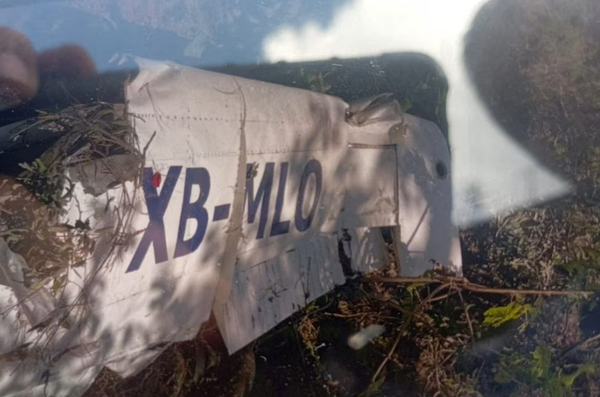Behind the Election Commission of India’s (ECI) recent list of “non-existent” political parties are addresses that got left behind years ago or those that couldn’t be traced at all, while in some cases, there are office-bearers surprised by the move.
The ECI has been on a drive to clean up the list of registered unrecognised political parties, deleting 284 since May this year for either being untraceable during a physical check or not responding to communications. As of the last notification of parties and symbols in September 2021, there were 2,796 registered unrecognised parties, apart from the recognised national and State parties.
The ECI’s latest order on September 13 delisted 86 parties, of which 14 were in Delhi. These parties were found to be be in violation of the Representation of the People Act, 1951, which mandates that every registered party must inform the ECI of any change in address, office-bearers, name, or Permanent Account Number (PAN). The affected parties were given 30 days to appeal. The apprehension, according to a senior ECI official, was that some parties may be misusing the Income Tax exemption clause. In fact, in July, the ECI gave the Revenue Department a list of three such parties for criminal action for serious financial impropriety.
‘No knowledge of delisting’
Among the six delisted parties The Hindu tried to track down in Delhi was the Loktantrik Janata Front. Its office in east Delhi’s Laxmi Nagar had no signage or address displayed. Sitting in the dimly-lit third-floor office, Yogesh Chaturvedi said he had been a member of the party for at least 12 years. He said the party had contested the Uttar Pradesh Assembly elections in the past.
“We have not received any notice from ECI yet, our lawyer will respond if we do. We are very much still active,” he said. The party’s main cause has been “reservation on the basis of income criteria, not caste,” he said. Unprompted, he added, “We don’t believe in donations.”
For Sumant Sharma (60), acting president of the Rashtriya Krantikari Janata Party, the news of his party’s deletion came as a surprise. He said he had “regularly filed” contribution reports, tax statements and other necessary documents to the ECI since founding the party in 2007. While he said the party’s address had changed from the city’s Karol Bagh locality to Sangam Vihar, the ECI’s deletion order mentioned the old address still.
He said the party had contested elections in Delhi and Bihar. In the 2009 Lok Sabha elections, the party’s New Delhi candidate, Harendra, secured 1,079 votes.
“We have not fought any elections since 2014. However, I did try contesting in 2019 from the South Delhi constituency, but my application was not accepted…I have no clue as to why our party was delisted and I will raise this issue with the ECI,” Mr. Sharma said.
The ECI’s September 13 decision had highlighted that a party must contest an election within five years of its registration, and should continue to contest thereafter. “If the party does not contest elections continuously for six years, the party shall be taken off the list of registered parties,” it said.
‘No will to continue the party’
Another one of the delisted parties, Mahanayak Sardar Patel Sangh, was founded in 2013 to “fight against corruption and eliminate discrimination in society”, its founder, Ram Avtar Sastry, said.
Seated on a couch in his two-bedroom apartment-cum-party office in South Delhi’s Chittaranjan Park, Mr. Sastry said he was unaware of the delisting. The 74-year-old claimed that the party had contested the 2014 Lok Sabha and the 2015 Delhi Assembly elections, but due to his ill health and the death of key party members during the COVID-19 pandemic, he had “no will” to continue the outfit further. Now, he said, he has gone back to focusing on his NGO, the Sardar Vallabhbhai Patel Foundation.
Addresses changed years ago
For some of the delisted parties, the addresses registered with the ECI had new occupants or none at all. The unmarked basement of a three-storey building in Chirag Enclave was listed as the address of one such party, the All-India Babu Jagjivan Ram Baba Saheb National Congress, but upon visiting, it was found to be empty. Residents in the building, and in the vicinity, said that the party office was vacated close to a decade ago.
The tale of the Bharatiya Parivartan Party was similar. Its registered address, the ground floor of a Delhi Development Authority flat in Pandav Nagar, has been home to a family since they purchased the house in 2008. A neighbour, who wished to remain anonymous, said he remembered a “ dabang type”, implying a strongman character, had rented the flat years ago, for a few months. He recalled a makeshift office, but didn’t remember much else about it.
Another address, in Krishna Nagar’s Chandu Park, could not be traced as the de-listed party, Rashtrasamarpit Jansamooh, mentioned only the house number and not the galli or street number. Residents with the same house number on two different streets said they had not heard of the party.
While the delisted parties have till October 13 to approach the ECI with proof of their existence, it remains to be seen how many actually do so and how many quietly cease to exist.







